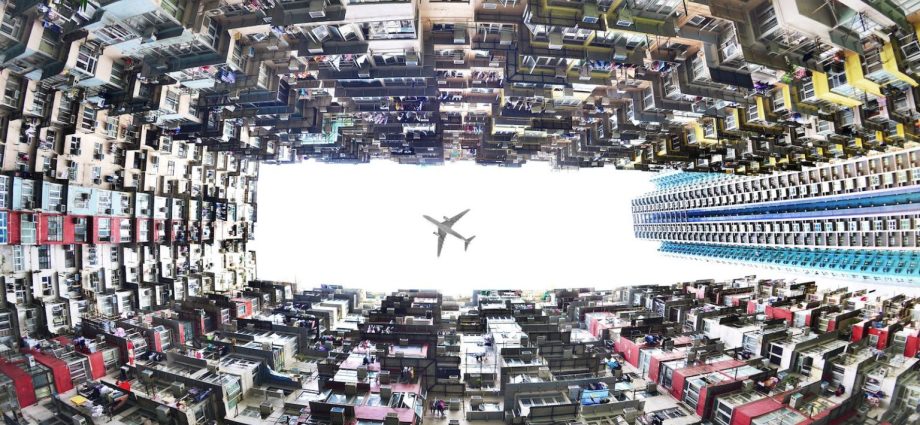The Chinese are increasingly angry with Iran. Reuters reports that Chinese officials have asked Iran “to rein in attacks on ships in the Red Sea by the Iran-backed Houthis, or risk harming business relations with Beijing.”
That may not sound like much of a threat, but the hidden text is that a lot of the parts for Iranian missiles and drones, along with equipment for Iran’s large-scale nuclear program, come from China.
If China actually cut these supplies off, Iran would have to close its war factories. Thus the Chinese would do to Iran what US export controls completely failed to do to China: shut down access to technology from Asia, the United States and Europe.
It would also hit Russia hard. Russia is buying drones and drone components from Iran. Yes, Russia could get stuff from China – but the Chinese have been anxious to avoid Western sanctions, so they have been careful on what they feed the Big Bear and they prefer an approach to under-the-table transactions that, in Chinese terms, appears to resemble plausible deniability.
China has even more reason than just armaments to be unhappy with the Houthis.
Europe is one of China’s largest trading partners. China’s share of overall imports into Europe rose from 4.6% in 2020 to over 20% today. And what the Chinese have achieved there is even more impressive when we note that a big part of imports to Europe other than from China are in the form of energy (oil, natural gas), including from Russia even now. China’s imports, on the other hand, are made up of a combination of some specialized raw materials (lithium and other rare earths) and the rest mostly manufactured goods.
China is undergoing a serious economic recession, with factories shut down, workers released or paroled and sales inside and outside China very sluggish. Compounding the problem is that China ships its goods using commercial carriers, and most of these shipments are by sea and pass through the Red Sea to the Suez Canal and on to Europe.
Even if the Houthis say they are not shooting at Chinese ships, that is completely irrelevant since non-Chinese ships by and large carry Chinese cargo. And even if ships keep using the Suez Canal, insurance rates are rising. So Chinese producers face a big challenge in the cost of transport – and, if ships are diverted around the horn of Africa, the weeks of delays in moving cargo. China simply cannot afford to lose any more business than it already has.
If Xi Jinping does not take even tougher measures on Iran, then he will be held responsible by China’s manufacturing elites for an even bigger failure. He already has a host of disasters on his hands – many of them, such as the crazy Covid restrictions, his own doing. His real estate market has collapsed. Fancy and not so fancy cars are piling up in holding yards because Chinese entrepreneurs and higher level government personnel have lost confidence and are holding onto their money, not in banks but in mattresses.

China had big ambitions to flood Europe with its new generation of battery powered cars. Many articles have been written about these fancy vehicles, although reporting inside China is far more critical. In any case, as Europe, especially Germany, deindustrialized, China saw an opportunity to replace European automobiles with its own brands.
Worse yet, at the same time that trade through the Red Sea and Suez Canal may be impractical, China’s Belt and Road Initiative appears to be collapsing. That entire program was founded in many cases on bribing local political leaders, especially in Asia and Africa, financing and building projects the recipients could never afford and then taking over critical assets such as ports, roads, air terminals and other infrastructure as a way of getting payment. For these countries it isn’t sustainable: in fact, it is the modern equivalent of exploitative colonialism. Belt and Road, instead of enhancing China’s global power, is undermining its influence and reach.
Iran, which energized the Houthis to carry out attacks on Red Sea shipping, has to a degree cut off its nose to spite its face. It has been behaving in a more ruthless manner in the region – sponsoring the Hamas war, promoting Hezbollah, putting Revolutionary Guard personnel in Iraq and Syria, supplying almost all the weapons for those forces and basically running the Middle East because Washington no longer cares, except to pretend it is a great power and to issue pronunciamentos that it has has no intention of enforcing.
Carrying out “surgical strikes” that are “proportional” against “objects” in Houthiland no doubt has inspired a new genre of Middle Eastern humor, soon to replace the renowned Armenian Radio (Radio Yerevan) of Soviet times.
Stephen Bryen, who served as staff director of the Near East Subcommittee of the
US Senate Foreign Relations Committee and as deputy undersecretary of defense
for policy, currently is a senior fellow at the Center for Security Policy and Yorktown Institute.
This article was originally published on his Weapons and Security Substack and is republished with kind permission.

